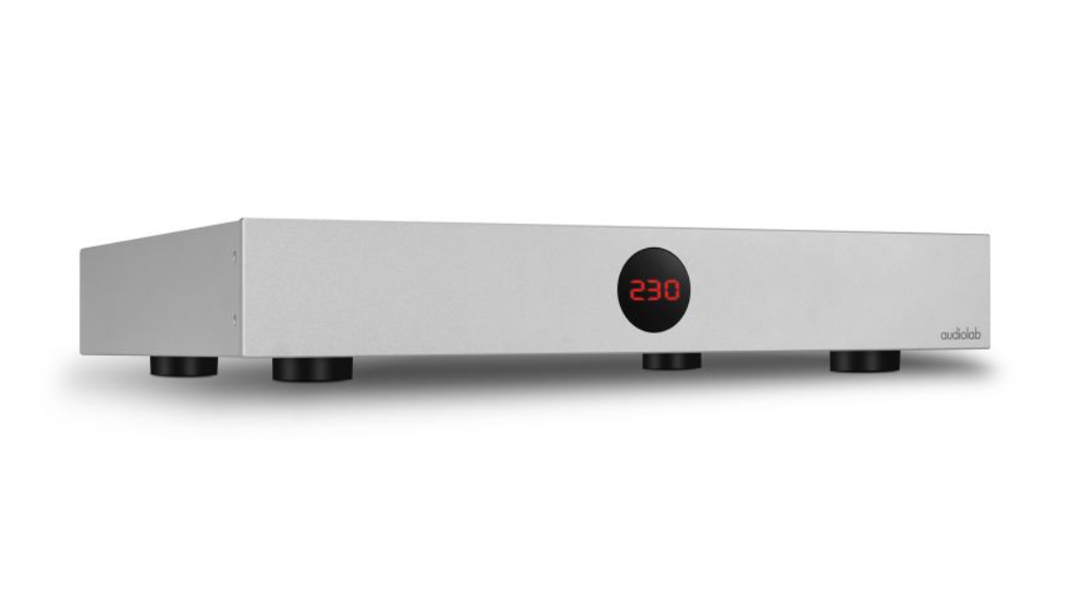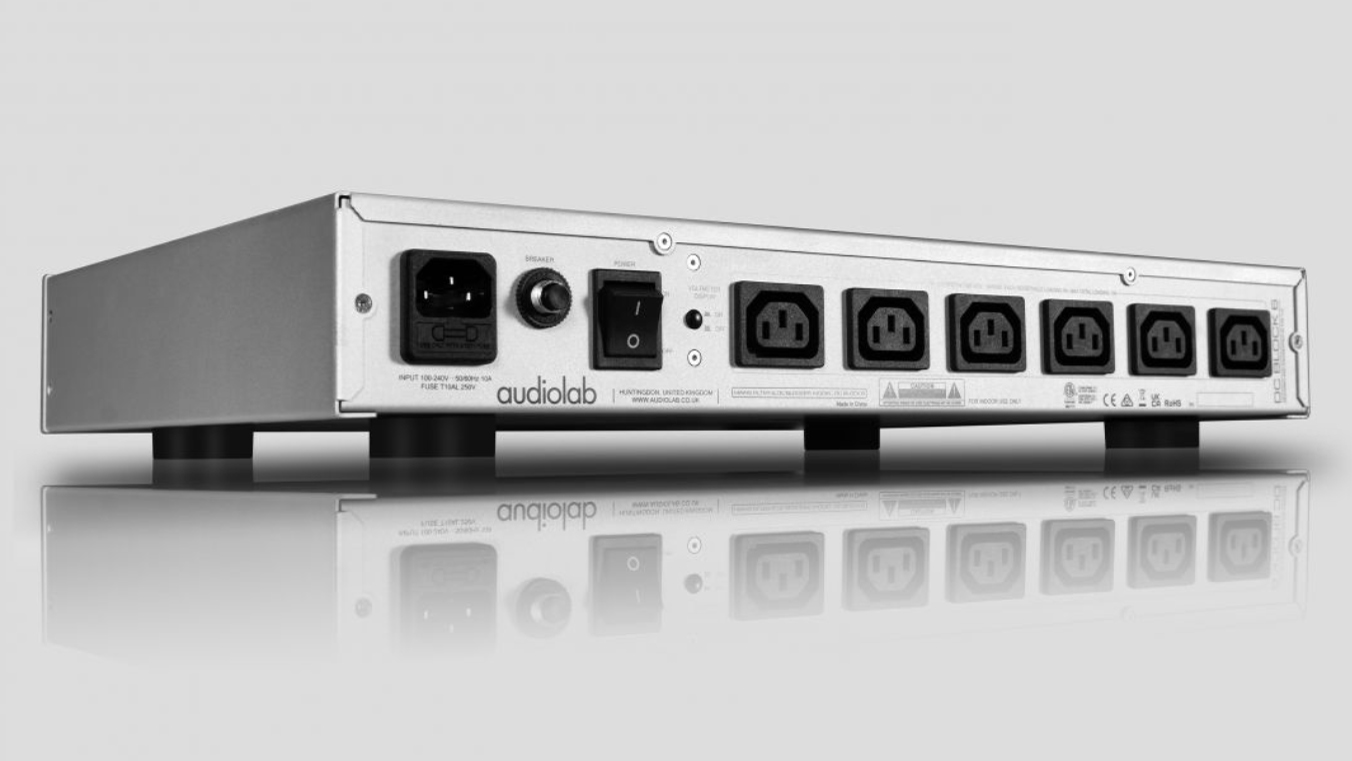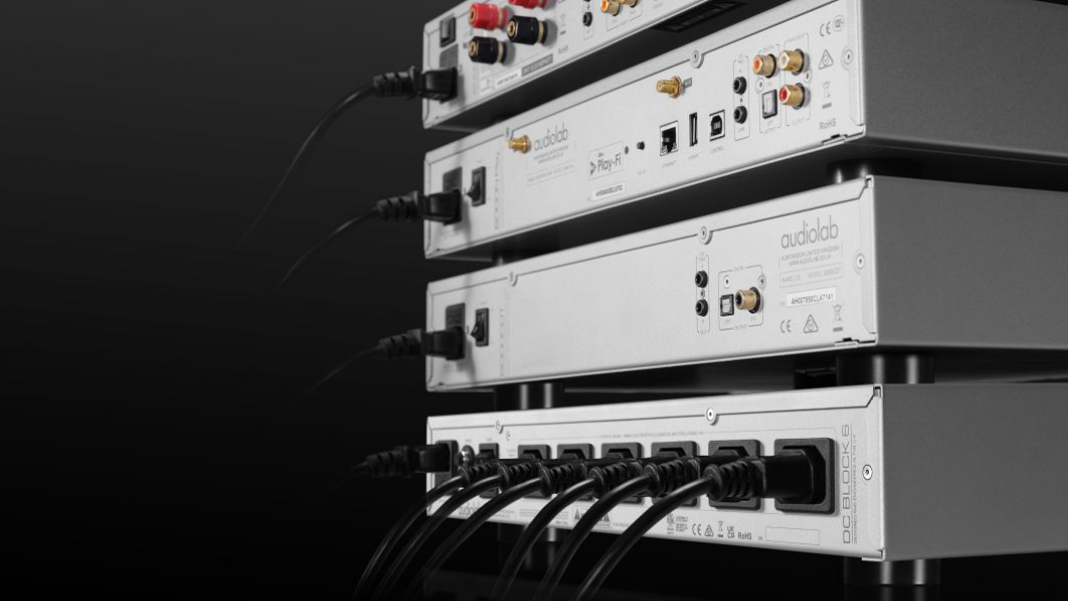Audiolab's DC Block 6 wants to help rid your whole system of noise
Clean up your mains for up to six separate hi-fi components

Audiolab has launched the DC Block 6, a six-way power strip that provides individually isolated mains for your entire hi-fi.
Designed to improve the quality of the AC electricity consumers use to power their sound systems, the DC Block 6 is the same width as an Audiolab source and amp components for simplified stacking and cable runs.
At the front is an OLED voltmeter, while around the back are six C13 IEC outlets. By connecting these outlets to the AC mains input of each audio component in your hi-fi and running a single IEC cable to connect the DC Block 6 to a standard power outlet, Audiolab says the device will remove RFI/EMI and banish ‘DC on the mains’.

‘DC on the mains’ is a problem that arises when devices on an AC circuit act as an asymmetrical load causing the voltage waveform to become offset and resulting in DC voltage on an AC supply.
Audiolab warns that many of the AC transformers commonly used in home audio equipment aren't able to tolerate the presence of significant levels of DC voltage without being compromised, affecting sonic performance and even causing audible mechanical vibration. The company claims that the Block 6 can correct DC offset and rebalance the mains sine wave by blocking DC voltage found within the AC mains supply.
Electromagnetic Interference (EMI) and Radio Frequency Interference (RFI) are separate noise issues arising from electromagnetic radiation produced by electronic devices. EMI refers to short-range interference caused by high-frequency emissions, such as those from switch mode power supplies in domestic appliances. Meanwhile, RFI is longer wavelength interference from external sources such as phones and Wi-Fi networks.

By addressing all these issues, Audiolab says that the DC Block 6 can helps audio components perform at their best, reducing a system's noise floor.
The latest hi-fi, home cinema and tech news, reviews, buying advice and deals, direct to your inbox.
The Audiolab DC Block 6 all-in-one DC blocker and mains filter is available in black or silver from November, priced at £349 (around $395/AU$628). It comes with six IEC C14 to C13 cables to connect to system components and a cable to plug into the mains.
MORE:
Modern-retro Mission 770 gatecrash the What Hi-Fi? Awards speaker category
7 mistakes to avoid with your stereo amplifier
The best new and classic tracks to test your hi-fi from the What Hi-Fi? playlist for December 2022
Mary is a staff writer at What Hi-Fi? and has over a decade of experience working as a sound engineer mixing live events, music and theatre. Her mixing credits include productions at The National Theatre and in the West End, as well as original musicals composed by Mark Knopfler, Tori Amos, Guy Chambers, Howard Goodall and Dan Gillespie Sells.
